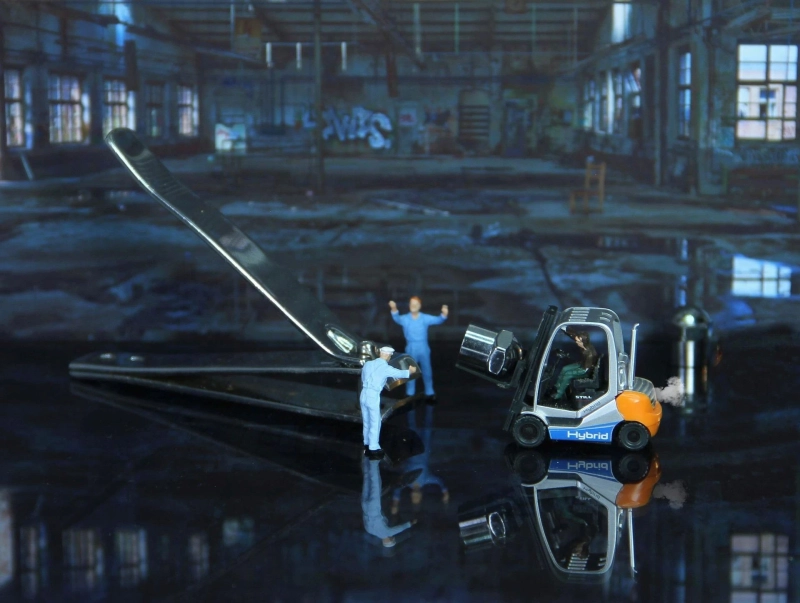There are a lot of things that can go wrong during forklift training in Melbourne. If operators aren't properly trained, it can lead to serious safety hazards and accidents on the job. There are many different types of forklifts and as such, specific training is required by following courses such as a forklift course in Melbourne, training for elevated work platform license in Melbourne, scissor lift training etc.
Not following the manufacturer's guidelines for safe operation
If operators are not trained to follow the manufacturer's guidelines for safe operation, they could end up causing serious damage to the equipment or themselves.
Workers should be trained to follow all safety procedures and guidelines when operating a forklift. This includes understanding how to properly use the controls, being aware of their surroundings, and knowing how to safely load and unload materials.
Ignoring these safety procedures can put workers and those around them at risk of injury or death.
Failing to inspect forklift equipment before use
Operators must learn how to inspect their vehicles before use. This includes checking the fluid levels, examining the tyres, and making sure that all the safety features are in working order.
Operators who fail to properly inspect their equipment are more likely to experience mechanical issues while on the job. These issues can lead to accidents or injuries if not addressed promptly.
Properly inspecting forklift equipment is essential for safe operation and should be done every time an operator gets behind the wheel. Failure to do this can cause problems down the road.
Another common mistake is not knowing how to properly use the brakes.
Forklifts are equipped with two different types of brakes; service and parking. Service brakes are used when a worker wants to slow down or stop the vehicle while it is in motion. Parking brakes, on the other hand, should only be used when a worker wants to keep the vehicle stationary for an extended period.
Operators who do not know how to properly use these brakes can put themselves and others at risk of serious injury.
Operating forklifts in reverse without proper training
Operating these vehicles in reverse can be tricky, and without proper training, it can be dangerous. Workers should always be aware of their surroundings when driving in reverse, and they should know how to use their mirrors effectively.
Additionally, workers should never drive too fast when going in reverse, as this can make it difficult to stop the vehicle if something is in its path.
Carrying loads that are too heavy or not properly secured
A common mistake is not being aware of the weight limit. Each forklift has a maximum weight capacity that cannot be exceeded. If an operator tries to lift or carry too much weight, it can cause the forklift to tip over, which can lead to serious injuries.
Operators must always be aware of the weight limit and make sure they do not exceed it. By following these simple tips, workers can avoid making common mistakes that can put themselves and others at risk.
Each different type of forklift will have its load limit, and workers must know what this limit is before using the machine. If a worker is unsure, they should ask their supervisor or consult the manufacturer’s instructions.
There are also certain types of loads that are not suitable to be carried by forklifts. These include loose materials, such as sand or gravel, and liquids in containers. If an operator tries to raise one of these types of loads, it can lead to spillage, which can create a slip hazard and put other people at risk of injury.
Operators must always make sure that the load is secure before raising it. This means ensuring that it is correctly balanced and will not shift or fall off the forks while in transit.
Allowing passengers to ride on forklifts
Passengers should never be allowed on these types of vehicles because they are extremely dangerous. If the load shifts or the forklift tips over, anyone on board is at risk of serious injury or even death.
In addition to this, it can also be distracting for the operator if people are riding on the forks with them. This increases the likelihood of an accident occurring. Operators who break this rule should be disciplined appropriately to set a precedent for others.
Allowing unauthorised personnel to operate forklifts
Only those who have received proper training and certification should be allowed to operate these vehicles. Allowing untrained individuals to use them can put themselves and others at risk of injury.
Ignoring traffic signs and signals when driving a forklift
At all times, operators should obey traffic signs and signals when driving a forklift, just as they would if they were behind the wheel of a car. Forklifts are large and can cause serious damage if involved in an accident, so operators must use caution when operating them. Those who do not follow traffic laws should be disciplined to ensure that others do not follow their lead.
By following these simple rules, forklift operators can help create a safe work environment for themselves and those around them. Ignoring these rules puts everyone at risk and can lead to accidents that could have easily been avoided.
0


